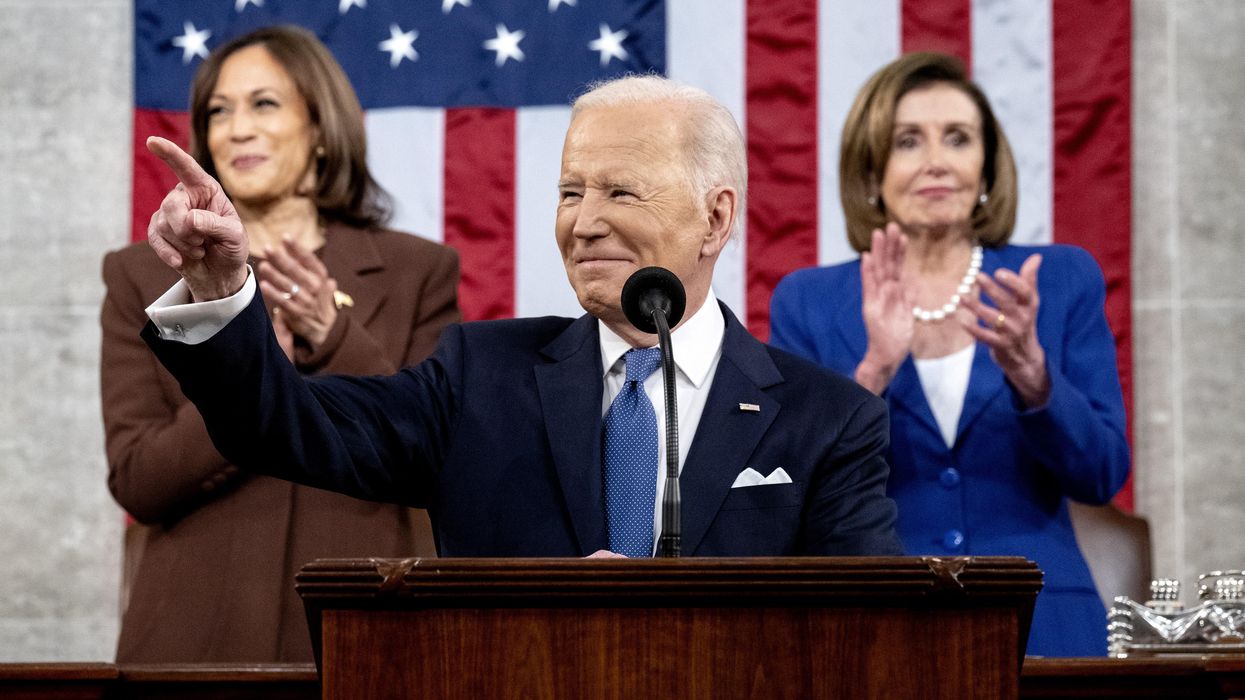Anderson edited "Leveraging: A Political, Economic and Societal Framework" (Springer, 2014), has taught at five universities and ran for the Democratic nomination for a Maryland congressional seat in 2016.
The war between Russia and Ukraine has given President Biden an opportunity to reset his presidency. His State of the Union address made an effort to do that, but it only partially succeeded. We need a more coherent synthesis of the strategy against Russia and the strategy against dysfunction in Washington.
Why are we helping Ukraine? And why are we not sending troops into Ukraine to help them?
Answering the second question is easier. Ukraine is not a member of NATO, and the United States (like the 29 other member states) is only committed to protecting NATO members attacked by a foreign foe. Biden is not sending U.S. troops into Ukraine or U.S. planes to fly over the country because we have no obligation to do so.
Why, then, are we leading a coalition that is both imposing financial sanctions on Russia and sending anti-tank missiles, automatic weapons and armored vehicles into Ukraine?
First, it is in our self-interest to push the Russians out of Ukraine. If Russia succeeds in occupying Ukraine and seizing control of the government, then our NATO allies in Europe, most notably Poland will be under threat of invasion also. To the extent that our NATO allies are threatened or indeed run over, the safety of all NATO nations, including the United States, is threatened. Indeed, if Ukraine falls, the entire post-Cold War European order will be shattered.
Second, it is pathetic to see Russian President Vladimir Putin attack Ukraine for no good reason. The United States does not always intervene when we believe there is grave injustice around the world — there are over 50 wars (admittedly many are civil wars) going on in the world right now where we have no involvement — but in this case our commitment to NATO permits us to stand up for a country being brutalized and bullied.
How is the Ukraine conflict tied to dysfunction in Washington?
Biden's domestic agenda must put aside a purist kind of argument in the same way that his agenda in Ukraine has put aside a purist argument. We could be idealists in domestic affairs and pragmatists in world affairs, but it seems wiser to be pragmatists in both.
The idealists in the Democratic Party are the progressives, the left wing led by Sen. Bernie Sanders, Sen. Elizabeth Warren, Rep. Alexandria Ocasio-Cortez and Rep. Pramila Jayapal. They not only have very progressive solutions to problems, ranging from the Green New Deal to single-payer health care, they exhibit a moral certainty about the truth of the views they express.
The pragmatists in the party, and Biden has been one at different times in his career, are less doctrinaire and more open to bipartisanship: The very call for bipartisan solutions expresses a pragmatic viewpoint because it says that forming a compromise in dysfunctional Washington with the other party is the best way to proceed.
Biden's State of the Union address sounded more Wilsonian in foreign policy and more Jeffersonian in domestic policy. Although he called for bipartisanship on a number of policy issues several times and thanked the Republicans for their work on the infrastructure bill, he spent the majority of his address telling Congress and the American people what we have to do because it is the right thing to do, whether it's offering child care subsidies, providing insulin at an affordable price for diabetics or establishing universal background checks for gun purchasers.
You can argue for policies from a pragmatic point of view and still draw on moral principles, but you have to be more honest with your audience and tell them where you are coming from.
In the case of Russia and Ukraine, it means explaining to the American people how our self-interest is at stake along with the self-interest of our NATO allies. In the case of domestic policy, a more explicit effort is needed to build bridges with Republicans who have rejected the massive Build Back Better bill, a pragmatist effort to find compromises that will lead to legislation that passes.
If Biden adopts a pragmatist standpoint with respect to both foreign affairs and domestic affairs, he will end up with a strong centrist standpoint in domestic affairs that reflects his temperament and a realistic standpoint in foreign affairs that enables us to stand up for allies who are being treated in grossly unfair ways — without taking the Wilsonian step of sending our troops into battle to save democracy wherever it is threatened.




















Trump & Hegseth gave Mark Kelly a huge 2028 gift